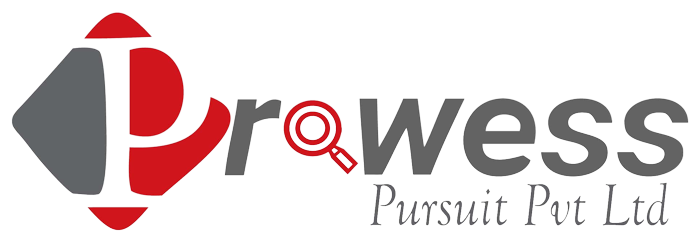
Startup Visa Canada – Requirements, Processing Time And Benefits
Are you an aspiring entrepreneur with a brilliant business idea? If so, the Startup Visa Program of Canada might be the perfect opportunity to turn your dream into reality. This program is designed to attract talented immigrant entrepreneurs to Canada and foster the growth of innovative businesses. By immigrating through the Startup Visa Program, you can gain permanent residence in Canada while receiving valuable support to establish your business.
This blog post will provide a comprehensive overview of the Startup Visa Program, including its eligibility requirements, processing timelines, and the significant benefits it offers to successful applicants. By exploring these details, you’ll gain a clear understanding of what it takes to qualify for this program and how it can help you achieve your entrepreneurial goals in Canada.
What Is Canada’s Start-up Visa Program?
This blog aims to be your one-stop resource for everything you need to know about Canada’s Start-up Visa Program (SUV). If you’re an ambitious entrepreneur with a groundbreaking business idea, this program could be your fast track to permanent residency in Canada.
The SUV program specifically targets immigrant entrepreneurs with the vision and capability to build successful businesses in Canada. These businesses should be innovative, have the potential to create jobs for Canadians, and be able to compete on a global scale. By attracting talented foreign entrepreneurs, Canada fosters economic growth and job creation. If your business aligns with these goals, the SUV program can provide you with a clear path to living and working in Canada.
Who Can Apply for Canada’s Start-up Visa Program?
Canada’s Start-up Visa Program is an attractive option for foreign entrepreneurs seeking permanent residence by establishing a business in Canada. But who can apply for this program? Here’s a breakdown of the eligibility criteria:
1. Team Structure and Business Commitment:
- The program allows applications from individuals or groups of up to 5 owners.
- Each applicant must hold a minimum of 10% ownership (voting rights) in the business.
- Together, the applicants and their designated support organization (more on that later) must hold a majority stake (over 50% of voting rights).
- If successful, applicants must incorporate their business in Canada and actively manage it from within the country.
- Importantly, a core part of the business operations must take place in Canada.
2. Endorsement from a Designated Organization:
- Not just anyone can vouch for your business idea. You’ll need a letter of support from a designated organization.
- These are government-approved business groups that assess and invest in promising start-ups.
- The onus is on you to convince them your business has potential. Their positive evaluation translates into a letter of support, a crucial document for your application.
- Additionally, the designated organization will submit a commitment certificate directly to Canadian immigration authorities, further strengthening your application.
3. Language Proficiency:
- Canada is a bilingual country, so language ability is a requirement. You’ll need to demonstrate achieving a Canadian Language Benchmark (CLB) of 5 in all four skills: listening, reading, writing, and speaking. This can be in either English or French.
- Ensure you take the language test from an approved organization to ensure your results are valid for the application.
4. Financial Self-Sufficiency:
- Unlike some programs, the Canadian government won’t provide financial support to Start-up Visa holders.
- You’ll need to demonstrate you have sufficient funds to support yourself and any dependents upon arrival. This money cannot be borrowed.
- The required amount varies depending on your family size.
How much money should you bring?
| Number offamily members | Funds required(in Canadian dollars) |
| 1 | $13,757 |
| 2 | $17,127 |
| 3 | $21,055 |
| 4 | $25,564 |
| 5 | $28,994 |
| 6 | $32,700 |
| 7 | $36,407 |
| If more than 7 people, for each additional family member | $3,706 |
Applying for a Start-up Visa Online: A 9-Step Guide
Canada’s Start-up Visa Program allows entrepreneurs to apply for permanent residence if they have a qualifying business and secure support from designated organizations. This guide outlines the nine steps involved in applying for the visa online.
Step 1: Complete Online Forms
Fill out digital forms for yourself and any family members over 18. These include:
- Generic Application Form for Canada (IMM 0008)
- Schedule A – Background/Declaration (IMM 5669)
- Additional Family Information (IMM 5406)
- Supplementary Information – Your travels (IMM 5562)
Step 2: Upload Additional PDF Forms
While you don’t need to sign these forms, upload them to your application:
- Document Checklist [IMM 5760] (use this to ensure you have all required documents)
- Schedule 13 – Business Immigration Programs – Start Up Business [IMM 0008 SCHEDULE 13]
Step 3: Complete and Sign Specific PDF Forms (if applicable)
These forms require printing, signing, scanning, and uploading:
- Statutory Declaration of Common-law Union [IMM 5409]
- Separation Declaration for Minors Travelling to Canada [IMM 5604]
Step 4: Using an Immigration Representative (Optional)
If you choose to use an immigration consultant or lawyer, they can:
- Help you prepare documents and answer questions
- Communicate with Immigration, Refugees and Citizenship Canada (IRCC) on your behalf (using their own account)
Important Note: Representatives cannot:
- Create an account for you
- Electronically sign your application
- Sign in to the portal using your credentials
Step 5: Photo Specifications
One digital photo is required for each applicant. Follow the online instructions for scanning and uploading.
Step 6: Pay Application Fees
Fees typically cover:
- Processing fees (you and your dependents)
- Right of Permanent Residence Fee (RPRF)
- Biometrics
Step 7: Biometrics Fee and Appointment
Pay the biometrics fee for fingerprint collection and digital photo. After submitting your complete application, IRCC will send instructions for providing biometrics at a specific location.
Step 8: Third-Party Fees (if applicable)
Depending on your situation, you may need to pay for:
- Medical exams
- Police certificates
- Language testing
Step 9: Submit Your Online Application
Ensure all applications from business partners are submitted before processing begins.
- Each partner needs their own application.
- Inform IRCC if a team member withdraws their application.
Before submission, double-check that you have:
- Answered all questions
- Electronically signed the application (typing your full legal name)
- Included the processing fee receipt
- Uploaded all supporting documents
An incomplete application will be rejected and require resubmission.
Canada Start-Up Visa Eligibility Requirements 2024
Thinking of launching your business dream in Canada? The Start-Up Visa (SUV) program might be your perfect gateway. Here’s a breakdown of the key eligibility requirements in 2024 to get you started:
Mandatory Requirements:
- Designated Organization Support: Secure a Letter of Support from a designated Canadian organization like a venture capital fund, angel investor group, or business incubator.
- Ownership Structure: Hold at least 10% of the voting rights in your startup. Together with your designated organization, you and your team must hold a majority (over 50%) of the voting rights.
- Language Proficiency: Demonstrate English or French language skills by achieving a Canadian Language Benchmark (CLB) of 5 or higher in an approved language test.
- Settlement Funds: Show proof of sufficient funds to support yourself and your dependents upon arrival in Canada. The minimum amount varies based on family size (between $12,960 and $34,299).
Additional Considerations for Success:
While meeting the mandatory requirements is crucial, a strong application goes beyond the basics. Here are some factors that can increase your chances of success:
- Innovative Business Concept: Showcase a business idea with high growth potential, proven revenue generation, or strong market validation.
- Financial Backing: Demonstrate access to capital to fund your venture. The minimum investment expected can range around $200,000 per applicant.
- Specialized Expertise: Possess unique experience or in-depth knowledge relevant to your field, or boast solid managerial skills.
- Advanced Language Skills: Having upper-intermediate English or French language proficiency can strengthen your application.
Remember, this is a general overview. It’s recommended to consult the official Canadian immigration resources https://www.canada.ca/en/immigration-refugees-citizenship/services/immigrate-canada/start-visa.html for the latest details and application procedures.
Not Ideal for Limited Capital Entrepreneurs
Canada’s Start-Up Visa program offers an attractive path for foreign entrepreneurs, but it’s not for everyone. Entrepreneurs with limited capital for their ventures may find this program unsuitable due to the key requirement of securing a letter of support or investment from a designated Canadian organization.
These designated organizations, which can be venture capital funds or angel investor groups, act as a gatekeeper for the program. While the program itself doesn’t have a minimum investment threshold, your chances of receiving crucial support from these organizations are slim without sufficient funds to invest in your startup.
The allure of the program lies in its advertised “no minimum investment” requirement. However, venture capitalists and angel investors are typically not swayed by simply a great idea. Their focus lies in established companies with a proven track record of success and significant revenue generation. These investors are unlikely to provide seed capital for an idea in its early stages.
Limited Capital Doesn’t Mean Limited Options
If you’re an entrepreneur with a brilliant product or service but limited capital to propel it forward (think under $200,000), the Start-Up Visa program might not be the most suitable option. However, this doesn’t mean you have no path forward in Canada. There are alternative immigration pathways available that we’ll explore in more detail in a future discussion.
Should You Apply for a Start-Up Visa (SUV)? Examining the Pros and Cons
The Start-Up Visa program (SUV) offers a tempting path to launching your business dreams in Canada, but it’s not without its challenges. Before diving in, consider these key advantages and disadvantages:
Advantages:
- Fast Track to Permanent Residency: The SUV program streamlines the path to permanent residency in Canada, allowing successful applicants to establish roots and build a long-term future.
- Open to All: Nationality isn’t a barrier. As long as your business idea shines, you can apply regardless of your origin.
- Business Freedom: The SUV program doesn’t restrict the type of business you can launch. Pursue your entrepreneurial vision within the vast Canadian market.
- Focus on Ideas, Not Finances: Unlike some programs, the SUV doesn’t require a minimum net worth. Your innovative concept takes center stage.
- Strength in Numbers: Team up with up to four other individuals (with a minimum 10% ownership stake each) to leverage diverse skillsets and boost your application.
- Work While You Wait: The SUV allows you to obtain a work permit while your permanent residency application is being processed. Get a head start on building your business network and presence in Canada.
Disadvantages:
- Competition is Fierce: Securing support from a designated Canadian organization is crucial for your application’s success. Be prepared to face stiff competition for their endorsement.
- Patience is Key: Obtaining permanent residency can take over three years. Prepare for a marathon, not a sprint.
- Investment May Be High: While there’s no official minimum net worth requirement, securing support from designated organizations often hinges on demonstrating access to significant capital. Be prepared to invest in your venture.
- The Business Plan Matters: Your business model needs to be not just well-developed, but also demonstrably viable and scalable with a proven track record of success. Be ready to showcase a strong plan.
- Potential for Delays and Refusals: The application process can involve peer reviews, which may lead to delays or even refusals at the permanent residency stage. Be prepared to navigate potential roadblocks.
The Takeaway:
The SUV program offers a unique opportunity for aspiring entrepreneurs, but it’s a competitive path. Weigh the advantages against the challenges to determine if it aligns with your goals and resources. Carefully consider your business concept, funding options, and risk tolerance before embarking on this exciting, yet demanding, immigration journey.
Securing a Letter of Support for Canada’s Startup Visa Program: A Step-by-Step Guide
Obtaining a letter of support from a designated organization is a crucial step in securing permanent residency under Canada’s Startup Visa Program. While it may seem challenging, careful preparation can increase your chances of success. Here’s a breakdown of the key steps:
Before You Apply:
- Market Validation is Key: Canadian designated organizations prioritize startups with strong market validation or established recurring revenue. If your idea is innovative but lacks concrete evidence of its viability, consider working with business consultants to test and validate it before approaching designated organizations.
The Application Process:
- Craft a Compelling Pitch Deck: Develop a clear and concise pitch deck that showcases your business concept. Highlight the problem your startup solves, its target market, and the unique value proposition. Consider this your business idea’s elevator pitch, designed to grab attention and spark interest.
- Seek Review and Evaluation: Research designated organizations aligned with your industry and submit your application package, which likely includes your pitch deck and business plan. These organizations will assess your idea’s potential and fit within their investment focus.
- Prepare for the Interview: Be ready to delve deeper during the designated organization’s interview. They’ll likely assess your team’s skills and experience, the financial viability of your venture, and your passion for making it a success. Practice your pitch and anticipate potential questions to showcase your preparedness.
- Agreement and Fees: Following a successful interview, you may be offered a letter of support contingent upon signing an agreement with the designated organization. This agreement typically outlines the terms of their support and any associated fees.
- Secure Your Letter of Support: Upon finalizing the agreement and settling the fees, you’ll receive the coveted letter of support. This document is a vital piece of your Canada Startup Visa application.
- Permanent Residency Application: Armed with your letter of support and other required documents, submit your application for permanent residency and work permit to Canadian immigration authorities.
Additional Support:
Remember, this journey may require guidance. Don’t hesitate to seek help from professionals or immigration consultants. They can connect you with the right resources and enhance your chances of success in securing permanent residency through Canada’s Startup Visa Program.
Start-Up Visa Canada Costs: Full Review
Obtaining a Start-Up Visa (SUV) in Canada can be a great way for entrepreneurs to immigrate and establish their business in the country. However, there are significant costs associated with the program. This breakdown will explore the various expenses involved, ranging from preparing your application to launching your business.
Cost Breakdown Table
| Category | Description | Estimated Cost (USD) |
| Pitch Deck Preparation | * For established startups ($500k+ revenue) * For concept startups (market research, customer traction) | * $3,000 – $5,000 * $100,000+ |
| Designated Organization Fees | Fees charged by organizations supporting your application (incubators, angel investors, venture capital) | * Varies (see below) |
| * Incubators | Provides mentorship and resources | * $40,000+ |
| * Angel Investors | Invest in your startup in exchange for equity | * $35,000+ |
| * Venture Capital Funds | Invest larger sums in high-growth startups | * $50,000+ |
| Legal Costs | Lawyer fees for application guidance | * $20,000+ |
| Government Fees | Application fees for permanent residence | * Main Applicant: $1,540 * Spouse: $1,040 * Dependent Child: $150 |
| Business Execution Costs | * Operational costs to sustain your startup while waiting for permanent residence | * $100,000+ |
Key Points:
- The total cost can range from USD 165,730 to well over USD 300,000.
- The cost heavily depends on your startup’s stage. Established startups with significant revenue pay less for pitch deck preparation.
- Designated organizations providing support (incubators, investors) charge varying fees.
- Legal guidance from lawyers adds to the overall cost.
- Don’t forget to factor in business operation expenses while your permanent residence application is processed.
Important Note:
- This is an estimated cost breakdown in USD.
- Government fees are subject to change. Refer to official Canadian government sources for the latest figures.
Cracking the Code: Canada Start-Up Visa Success Rates
The Canada Start-Up Visa (SUV) program offers a path to permanent residency for entrepreneurs with innovative business ideas. But what are the chances of your application being approved? This guide dives into the success rates and the factors influencing them.
Overall Success Rate:
The Immigration, Refugees and Citizenship Canada (IRCC) doesn’t publish official success rates for the SUV program. However, industry reports suggest a general success rate exceeding 75%. This means statistically, over three-quarters of eligible applications get approved.
Success Rate by Designated Organization:
The type of designated organization supporting your application significantly impacts the approval rate. Here’s a breakdown:
| Designated Organization | Success Rate |
| Business Incubator | 78% |
| Angel Investor Network | 80% |
| Venture Capital Fund | 43% |
Understanding the Discrepancies
The significant difference in success rates between support groups can be attributed to several factors:
- Due Diligence: Designated organizations conduct thorough assessments before endorsing ventures. Business incubators and angel investor networks often focus on early-stage startups, taking a more hands-on approach. This translates to a deeper understanding of the business potential, leading to stronger applications.
- Investment Thresholds: Venture capital firms typically invest larger sums in established ventures with proven traction. Their stringent selection process can lead to fewer endorsements, impacting the success rate.
- Risk Tolerance: Business incubators and angel investors are more tolerant of initial risk, believing in the potential of innovative ideas. Venture capitalists, on the other hand, may prioritize ventures with a lower risk profile and a clearer path to profitability.
Maximizing Your Chances
While the overall SUV program boasts a high success rate, understanding the impact of designated organizations empowers you to make informed choices. Here are some tips:
- Choose the Right Support: Align your business stage and risk profile with the expertise of a designated organization.
- Craft a Compelling Business Plan: Demonstrate a clear market need, a strong value proposition, and a realistic growth trajectory.
- Secure Funding: Align with an organization whose investment threshold matches your funding requirements.
- Seek Professional Guidance: Immigration consultants can help navigate the application process and ensure you meet all the requirements.
By understanding the success rates and the factors at play, you can significantly increase your chances of securing a Canada Start-Up Visa and turning your entrepreneurial dream into a reality in Canada.
Delay and Rejection Reasons for Your Start-Up Visa Application
Applying for a Start-Up Visa (SUV) is an exciting step for aspiring entrepreneurs. However, even well-prepared applications can face delays or rejections. Here’s a breakdown of common reasons and how to avoid them:
Understanding Peer Review:
If an immigration officer questions your application’s legitimacy, they may initiate a peer review. A designated organization will assess whether proper checks were conducted on your business plan and team.
Red Flags for Peer Review or Rejection:
The following situations can raise red flags and trigger a peer review or application rejection (table included):
| Red Flag | Explanation |
| Disproportionate Investment | The investor holds an unusually high or low share percentage with minimal control over the business. |
| Limited Applicant Control | The applicant has little ownership or decision-making power. |
| Related Applicants | Applicants are all family members or lack relevant experience/education. |
| Unoriginal Idea | The business lacks innovation and appears uninspired. |
| Unreasonable Fees | The designated organization charges excessive fees. |
| Inexperienced Team | The management team has limited experience launching startups. |
| Unproven Role | The applicant fails to demonstrate their crucial role in the company. |
| Slow Progress | The applicant makes minimal progress on their startup while in Canada. |
Key Takeaway:
Thorough documentation is crucial. Gather evidence to showcase your business’s genuineness and viability. By addressing these red flags, you can increase your chances of a successful SUV application.
FAQs
Who is eligible for a Canada startup visa?
You need a qualifying business idea and a Letter of Support (LOS) from a designated organization (venture capital fund, angel investor group, or business incubator program) in Canada.
Is there an age limit for a startup visa in Canada?
No, there is no age limit for the Start-Up Visa Program.
Can I get a startup visa without investment in Canada?
Yes, a business incubator program can provide a Letter of Support without requiring a minimum financial investment from you. However, venture capital funds and angel investor groups typically require minimum investments ($200,000 and $75,000 respectively).
How much does a startup visa in Canada cost?
There are application fees associated with the visa process, but the exact cost can vary. There are also additional costs for medical exams, police certificates, and potentially language testing.
What is the minimum IELTS score for a Canada startup visa?
You need to prove English language proficiency by meeting the Canadian Language Benchmark (CLB) 5 in listening, reading, writing, and speaking.
What are the disadvantages of a startup visa in Canada?
The application process can be competitive, and you’ll need to convince a designated organization to support your business idea.
Is Canada startup friendly?
Canada has a strong startup ecosystem with government programs and resources to support entrepreneurs. Compared to other countries, Canada’s Start-Up Visa Program is well-regarded.
What is the golden visa for Canada?
Canada doesn’t have a specific “golden visa” program that grants permanent residency solely based on investment. However, some Provincial Nominee Programs offer immigration options with a significant investment component.
Can I work with a startup visa in Canada?
Yes, the visa allows you to work for your own startup company in Canada.
What are the benefits of a startup visa in Canada?
The Start-Up Visa Program offers a pathway to permanent residency in Canada for successful entrepreneurs.
Can I start a business in Canada without PR?
It’s generally easier to incorporate and operate a business in Canada with permanent residency (PR) status. However, you may be able to explore alternative business structures with a visa.
How can I buy PR in Canada?
Canada’s immigration system is merit-based, and there’s no way to simply “buy” permanent residency.
What is the minimum investment for PR in Canada?
Some Provincial Nominee Programs have investment streams, but the minimum investment amounts vary.
Do startups offer visas?
Startups themselves don’t directly offer visas. However, they can play a role in the Start-Up Visa Program by providing the necessary Letter of Support.
Which countries have startup visas?
Several countries offer startup visa programs, with varying requirements and application processes.
How do I start a startup in Canada?
There are many resources available to help you launch a startup in Canada, including government programs, incubators, and co-working spaces. Consider researching the Canadian startup ecosystem and developing a solid business plan before applying for the Start-Up Visa Program.




